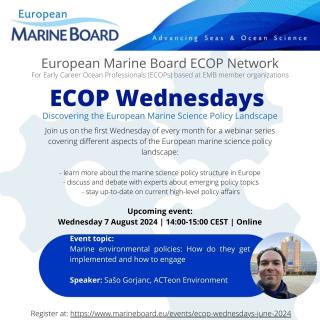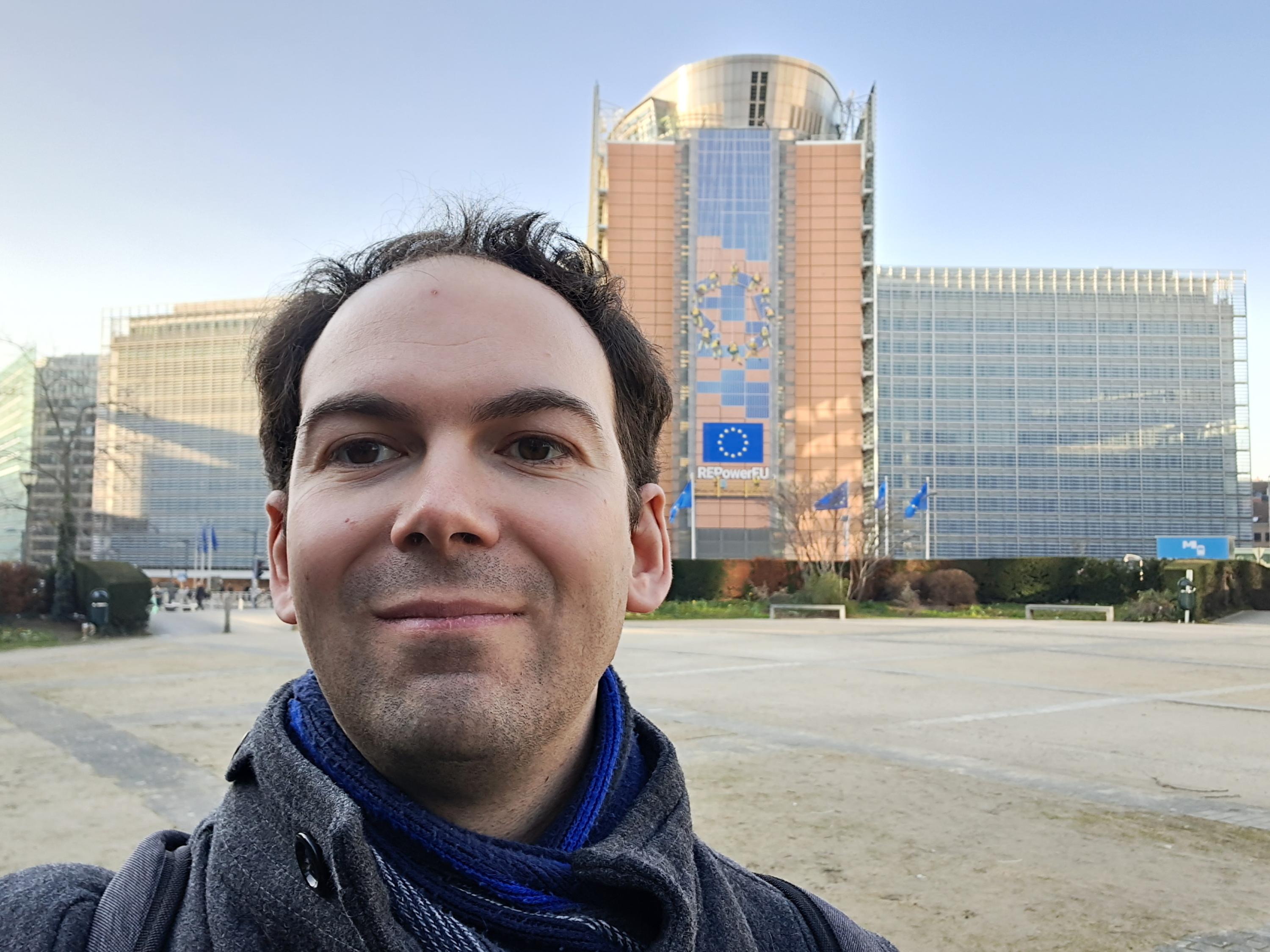
In this edition of the ECOP Wednesdays event series, hosted by the EMB Young Ambassadors and the EMB Secretariat for the EMB ECOP network, Sašo Gorjanc spoke on the topic of "Marine environmental policies: How do they get implemented and how to engage".
The EU has, arguably, some of the best marine environmental policies in the world and also some of the best data supporting them. Yet, the available environmental assessments show continued degradation of European biodiversity and environments and most of the 2020 policy goals have been missed. How does this happen? This talk explored the science-policy interface both from the theoretical standpoint and in practice, focussing on how policy actors, as in civil servants who are tasked with the implementation of environmental policies below the political level, engage with science and data and which other factors might also influence the decisions that they are making. Scientists and particularly young researchers are often told that engagement with policy is crucial for impact and it is now also often included as a requirement in grant applications to include this aspect, but are we really equipped to properly engage with policy actors?

Sašo is a social scientist and an environmental consultant, working on EU marine environmental policies, with a background in biodiversity conservation and environmental sciences. He has worked on a variety of projects from defining Key Biodiversity Areas and Pro-Biodiversity Businesses in South-Eastern, Mediterranean, and Central Europe, as well as strictly protected UNESCO World Heritage beech forests, marine systematic conservation planning, and a variety of marine policies. Having completed a PhD at University of St Andrews on the ways key actors interpret and implement EU marine environmental policies, he now works for an environmental consultancy ACTeon environment in France on projects focussing on policy coherence and cross-compliance, integrations of biodiversity and climate change into fisheries policies, future of marine biodiversity monitoring in Europe, and upscaling of nature restoration initiatives in the Atlantic-Arctic.
You can rewatch the presentation here and see the presentation slides here.
For any questions, please send an email to info@marineboard.eu.